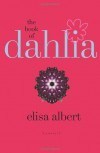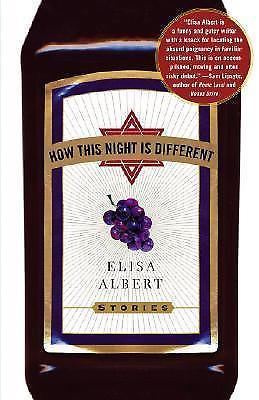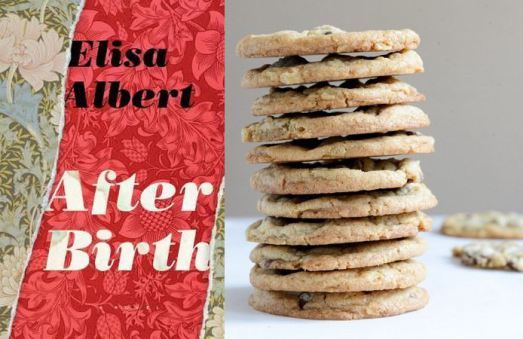Elisa Albert's Blog, page 2
March 2, 2018
The Truth About Writing Fiction From Your Life
Sari Botton | Longreads | March 2018 | 17 minutes (4300 words)
I’ve been working on a few different book projects for years — okay, decades — without yet publishing. There are many, many reasons it’s been taking me so long, but one of them is that I keep vacillating between memoir and fiction.
In the early 90s I dabbled in MFA programs, focusing on fiction. What I began writing in those days was somewhat based on my own experiences, yet also very made-up.
Then in the mid-90s, after I dropped out of two different programs in succession, books like Elizabeth Wurtzel’s Prozac Nation, Kathryn Harrison’s The Kiss and Mary Karr’s The Liar’s Club appeared and sparked a memoir boom. As a reader I became a nonfiction junkie. As a writer, I switched gears, started publishing personal essays…and then spent a lot of time freaking out about upsetting people by writing the truth — or my version of it, anyway.
These days I go back and forth, working on both memoir and somewhat autobiographical fiction, and spend a lot of time debating the merits of each with other writers.
On Sunday, February 11th, I turned to two of my favorite authors, Elisa Albert and Emily Gould, for their take on this. I sat down with them at Rough Draft Bar and Books in Kingston, New York, for a conversation ranging from the choices around writing fiction with autobiographical underpinnings, to the differences — mechanically-speaking and otherwise — between memoir and “autofiction.”
This interview was edited for brevity and clarity. you can listen to the audio — including Albert reading a passage from After Birth, and Gould reading a passage from Friendship, plus a Q&A with the audience.
* * *
Sari Botton: Elsewhere, both of you have talked a lot about, and written about, writing fiction from your life. I’ve been intrigued, and I thought that other people would want to hear about this too. So, is there a difference in your mind, either one of you, between straight up fiction and fiction that does have autobiographical elements, and what would be the difference?
Elisa Albert: We could do like a one word answer on the count of three, yes, or no. I don’t think there’s a difference. I think it’s like a spectrum, you know? Like a continuum, if you will. We are all bound by the limits of consciousness such as it is. Unless we alter our consciousness, but even altered consciousness is consciousness. It exists, you know? I mean, I can’t get into the physics too deeply, but even if you set something on Mars, you’re still coming from what you have to bring to bear, which is your consciousness. So, is that always necessarily autobiographical? No. But it does come from you. Or the one you, the eternal you, the shared collective you.
Emily Gould: Elisa and I obviously don’t write books that are set on Mars or in 18th century Scotland. No aliens are going to show up at the temp agency where Bev [a character in Friendship] is going to have her interview. There are no fantastical imaginative elements. But that also doesn’t mean that we didn’t make this stuff up. This book is actually so made up. And it’s actually really frustrating sometimes when people are like, “Oh, so what was it like for you when …” [name of my best friend] “decided to have a baby after getting pregnant after a one night stand?” And I’m like, “I don’t know, because that didn’t happen in my actual life.”
At the same time I want credit for being such an imaginative person, but then I look at any individual page of this book, and I’m like, well, yes, I did eat at that restaurant, and have basically that exact same interaction. But you know, then it became fictionalized. And we both have also written a lot of nonfiction, and think there is a shining line in my mind between the two forms.
Botton: You’ve both also written a fair amount of essay and memoir, and so people recognize certain things from your lives, which they can project on to your books, saying it’s totally just your life. But now you’re calling it a novel.
Albert: Change the names and there you go.
Botton: Right, exactly. But a lot of other novelists choose to completely invent worlds and that’s not what you’re doing, so it’s an interesting choice. Emily, I read something that you wrote about where the choice started. That you were having a hard time after writing a memoir, And the Heart Says Whatever. That after that you were having a hard time writing in the first person. Do you want to talk a little bit about that shift?
Gould: Oh sure. Yeah. In order to trick myself into being able to write again at all after the, sort of, critical and interpersonal disaster that was the reception to my first book, I sort of just started writing in the third person as an exercise even though I was still basically writing memoiristically. And then very gradually that became something other than memoir. It just started as a sort of thought exercise, and now this is something that I tell my students.
I’m teaching fiction now, and students come to me all the time and say things like, “I’m just so sick of myself. I’m sick of my perspective. I’m sick of all of my thoughts about everything. I’m sick of my themes. All of my fellow people in this workshop have heard the same story from me a thousand times already, and they’re sick of my shtick too. What can I do to break out of the aspects of me that I’m so bored with?” And I just tell them, “You’re stuck with you. I’m sorry.” They haven’t perfected head transplants yet, so we’re all stuck with ourselves.
But what you can do is just shift your lens. Try a new form even if it’s something that you’re really bad at. Draw a comic book even if you can’t draw at all. Switch point of view, like I did. Write a song or a poem about the stuff that you usually write about instead of just doing whatever it is that you usually do. It sounds so goofy, and 101, but it really works. You can pull the wool over your own eyes. You really can lie to yourself and trick your brain.
Even if you set something on Mars, you’re still coming from what you have to bring to bear, which is your consciousness. So, is that always necessarily autobiographical? No. But it does come from you. — Elisa Albert
Botton: So once you start writing about yourself, or write your story in the third person … although, Elisa, After Birth is in the first person, right?
Albert: Yeah. Because my first novel was in the third person, and I found it was the same thing anyway. Everybody still was kind of like, Oh, well, it’s just you, obviously.
Gould: Which is so weird because you didn’t die of brain cancer.
Albert: Right, I know. The narrator of my first book dies of a brain tumor at the end of the book, so I don’t know how that could be autobiographical. I mean, I think ultimately it’s a compliment. It has to be a compliment, you know? Because what people are saying when they’re sort of assuming those things or projecting, or whatever, is that you have created a world that is so visceral and immediate and convincing that oh, of course it’s you. You know? So you’ve done what you set out to do then. I mean, I wouldn’t want to write a book where people reading it would think, like, geez, this shit’s totally invented. You know?
And the other thing is a novel, anything you write, but a novel especially, just the scope of it, it has to be an obsession. So even if you’re obsessed with 17th century Germany, that’s your obsession, and there are deep-rooted ways in which that’s very autobiographical even though obviously you weren’t there in your current form. So whatever it is, it has to be an obsession. You can’t spend years working on something if you’re not obsessed. So even if it’s not about you, it is encompassing your deep need to think about, look at, explore something.
Botton: So then once you’ve started writing, either in the third or first person — but deciding that it’s fiction — how do you then take the elements of your life and make them into something that isn’t your life? That becomes another story, more than just your life? How do you make that leap? Or does it start with, like, I have this particular story I want to tell?
Albert: Lorrie Moore said in her amazing story, “How to Become a Writer,” which is in the second person, and is very autobiographical, that “it’s like recombinant DNA.” You change one little strand of something, and then watch how that ripples out. Then it’s a very different story suddenly. I like to use things from my own life that I’m not interested in inventing. I’m not interested in inventing an origin story. Like, the thing I’m working on now. It’s a girl from LA. I grew up in LA. I’m not interested in inventing a different origin story. That’s now where my obsession lies, so I’m going to use that. I don’t give a shit.
So that’s autobiographical. I mean, this person is not like me in many, many other ways, but I know that origin story, so I can make use of it. It would be wasteful otherwise. I would be wasting my energy. I’d be reinventing the wheel. I have a pretty deep identification as somebody who was raised in a really religious household. I’m not interested in reinventing that at this point. That’s not what I’m looking at. So that’s a given. I’m going to use that. That’s there. I’m fluent in that, you know?
Botton: That frees you, then, to create the other aspects of the story.
Albert: The things I’m kind of obsessed with looking at or turning over or flipping around or inverting or whatever, that’s what I’m going to spend these years doing. And I don’t have to then waste my energy on the other elements because, you know, maybe in a different book those elements might need tweaking, but yeah. It’s like butterfly wings, right? Like, tsunami on the other side of the globe because, like, one little movement here.
The narrator of After Birth — her mother is dead. My mother’s not dead. She has an unnecessary surgical birth that was like super inhumane and traumatic. That didn’t happen to me. She’s an academic. I’m not an academic. Whatever. But, see, then we get into this weird thing where I’m like, see! Whatever.
Elisa and I obviously don’t write books that are set on Mars or in 18th century Scotland. There are no fantastical imaginative elements. But that also doesn’t mean that we didn’t make this stuff up. ‘Friendship’ is actually so made up. — Emily Gould
Gould: I’m sure this is something that you guys definitely all already thought about before, but I find myself thinking about writing fiction sometimes in terms of almost like method acting a little bit. Like, you can take an emotional experience that you’ve had and transmute it into another form. I’ve never experienced a shattering romantic betrayal, which is one of the things that I write about in Friendship. Yet. But I have experienced betrayal on a deep level in a relationship, but just not, like fucking someone else. You know?
So I was able to use that emotional experience and turn it into something else, the same way that I imagine actors do. I don’t know. I’m a terrible actress, so I actually don’t know how that works. But that’s what people talk about in “The Actor Prepares,” which I totally read in drama class.
Botton: That’s so funny. An article came up in my world today, in my social media world, with a title like “Apply acting techniques to your writing.”
Albert: People come at me sometimes, like about opinions spewed by the character, and they really want to fight me about it, and it’s like, dude, you’re not going to go after Al Pacino for his mafia activities. Like, get your shit straight, okay? This is like a role, this is a performance, okay?
Botton: That’s a good way of putting it. When I emailed you guys and was asking like, “Are we talking about autofiction?” Emily, you were like, “Well, I don’t write autofiction.” And then Chloe Caldwell [who had to bow out of the event] was like, “I write autofiction.” It’s a really hard thing to get a handle on. What exactly is autofiction? Emily, I know that you’re a big fan of Chris Kraus, and her stuff kind of falls into that category, maybe? So I wondered if you could just talk a little bit about what it is and why it isn’t what you’re doing.
Gould: Well, I mean, the most straightforward, I think, contemporary example of autofiction that probably the most people in this room have read, just based on the bestseller list is Knausgård. Has anyone read any of those My Struggles? All of the struggles? Yeah, there were a lot of them. But what he does, I think, is — it’s just this amazingly super detailed tracking the movements of his own consciousness thing, but filling in the gaps in his memory with imaginative detail, I assume, and that’s what makes it a novel rather than a diary. So, for example, there’s a famous scene at the end of the first My Struggle volume that’s just this virtuosic scene where he is cleaning out his disaster alcoholic, hoarder, dead father’s house for days on end. Just like, you’re there. You are in the house, smelling the smells, moving the specific objects from room to room with him, like almost in real time, for as long as it takes. That, to me, is autofiction. That form. And that’s just so, so different from what either of us have done, even though we have written about characters who are our same ages who have our same hair colors.
Botton: I was also thinking about Lisa Halliday’s new book, Asymmetry.
Gould: Ooh, yeah, that one’s good.
Botton: It’s about a relationship with a Philip Roth-like character. That’s part of it. And the author did have a relationship with Philip Roth, and she was interviewed in the Times and she talks about how she uses the basic details from her life to just kind of set up the universe, and then she makes a story and works from there.
Albert: Well, then there’s the idea that, is there such a thing as nonfiction? You know, its arguable. Even if you’re trying to write a memoir, somebody else who was there might have a very different memoir.
Gould: I think there are formal distinctions that we just have to make. It’s like the difference between painting oils or painting watercolors or something? And for some reason that’s really important to me to draw those distinctions. And I also have incredibly strong feelings about “nonfiction” that is written without faith, you know? Like A Million Little Pieces-style stuff. That bugs me.
I like to use things from my own life that I’m not interested in inventing. I’m not interested in inventing an origin story. Like, the thing I’m working on now. It’s a girl from LA. I grew up in LA. I’m not interested in inventing a different origin story. — Elisa Albert
Albert: Well that was written as a novel.
Gould: Oh, but published as a memoir.
Albert: Right.
Gould: So then we’re also talking about market forces and marketing categories informing what gets called fiction and what gets nonfiction. But we don’t have to bring commerce into this room tonight.
Albert: Let’s not bring the market into this.
Gould: We can just keep this in the lofty realm of art for now.
Albert: But you know that old line about how if you say it’s a memoir, they’ll say you made it all up, and if you say it’s fiction, they’ll say every word is true.
Botton: I was just going to say that. Yeah, so then why does somebody write autofiction as opposed to a memoir? It’s so close.
Gould: It’s not. It’s totally different!
Botton: It is? Okay.
Gould: Yeah, like a memoir has all these imaginative story elements and structures, and autofiction is really about living inside someone else’s mind, no matter how boring it gets there. It’s really trying to just transport you into someone else’s consciousness, which to me is like a super fascinating, trippy experience.
Albert: Done well, it’s, like, the best.
Gould: It’s transcendent when it’s done well. When it’s done badly, of course, it’s as boring as being someone boring is. And that’s just a world away from what we do as memoirists. Which is so much to do with eliding the boring part of the story and getting into the propulsive part of the narrative. That’s the craft of memoir. Sorry that I’m like, Duh, Sari.
Botton: That’s okay. I’m here to learn. But I have writers in my studio who talk to me all the time about what to do with what their writing. They are writing stuff that feels like memoir, but they want to explore different outcomes. I’ve been sharing Michelle Tea’s The Black Wave with people. There’s magical realism in there. I just love the way she goes from stuff that is so recognizable to, like, she’s just out there in another world. And so, I can never specifically know what is the best way for anybody to go, and this is kind of what this conversation came out of. I’m really trying to always get a handle on what are the differences. And I guess for different writers, it’s different things.
In order to trick myself into being able to write again at all after the, sort of, critical and interpersonal disaster that was the reception to my first book, I sort of just started writing in the third person as an exercise even though I was still basically writing memoiristically. And then very gradually that became something other than memoir. — Emily Gould
Once upon a time, everything was called a novel. There wasn’t the memoir category, and people wrote stories from their lives and called them novels, and so it got more confusing actually when the memoir genre got added. But I think for you, you’re very clearly writing fiction.
Albert: Well, I think I’d be out of material pretty quick. I mean, stories from our lives can be really interesting, and many of us have lived intense lives, but there’s only so much of it. Whereas, if you’re willing to sort of go off on little digressions and make up little details and see how that spins out, and bring your perspective to bear on things that are not your experience. Or try to inhabit somebody else’s perspective on something that maybe you have experienced, you have endless material. Then there’s just no end to it.
I think I would get bored. I mean, I write nonfiction sometimes, but it’s not as fun for me. It’s like a good muscle to exercise, but it’s like that playfulness, that kind of mischievous kind like, what can happen? What could I get away with? What if I push it this way?
Gould: Whereas, I feel like actually for me, nonfiction is where I started, and it’s my comfort zone, and fiction is a lot harder, and it comes a lot less easily. It is this arduous process whereas, it just is easier to come up with a halfway decent first draft of something memoiristic for me, at least. Whereas to come up with a halfway decent first draft of something fictional is just … My shitty first drafts of fiction are like so shitty. I think also there’s the hard, cold, horrible reality that just because something comes more easily to you doesn’t meant it’s good. God, that’s sad.
Botton: I mostly write nonfiction, memoir, essay. But I dabble in fiction. I started graduate school to write fiction. I published one short story on a website, which had autobiographical underpinnings, but also a lot of made up shit. But I started writing something like a year ago, and I was having so much fun doing it, but when I went back to it, I had to keep reminding myself — and it was also based on a character similar to me — but I had to keep reminding myself of the rules of this universe that this person lives in. That this person’s boyfriend is 18 years older and Italian. Having to orient myself again and again in this fictional world, I find hard. That doesn’t mean, though, that it isn’t something worth putting more time and effort toward and trying harder at, but for me it’s like a harder exercise to remember the rules of the universe I’ve created. Do you ever run into that?
Albert: Sometimes. I mean, like, plot mostly. Just to be like, okay, this happened, this happened. I can sort of hang out in a voice for a long time, but then to just keep the facts straight. But that’s administrative stuff, you know? A couple index cards.
Gould: Yeah. Those aren’t structural things, so if you’re thinking of it like a physical project? Like if you’re building something, that’s more like — the rules of the universe stuff you can always straighten out at the end in the same way that if you’re renovating a house, you can fix up the door frames and the windows. I don’t know anything about this metaphor.
Albert: It’s like curtains.
Gould: I’m going to stop. Yeah, it’s like you’re going to put in furniture and decorate and the wall paper and stuff, and that’s like the fun stuff that you do at the end. Also, copy editors will do some of it for you. And good line editors. Friendship was written a long time ago in my life, and I had never been pregnant. And now I’ve been pregnant a bunch, and I think the character who gets pregnant in Friendship was pregnant in the first draft, like the draft that sold, for like 11 months. Like an elephant. And no one caught it. A copy editor caught it. It was like, oops. And all I had to do was change some details about the weather, and it was fine, you know?
But that’s the kind of thing that — if you get bogged down in that stuff in the first draft, you’re going to prevent yourself from ever moving forward.
People come at me sometimes, like about opinions spewed by the character, and they really want to fight me about it, and it’s like, dude, you’re not going to go after Al Pacino for his mafia activities. Like, get your shit straight, okay? This is like a role, this is a performance, okay? — Elisa Albert
Botton: One of my obsessions that I’ve written a lot about, and interviewed people a lot about, and I’ve interviewed both of you about, is people getting pissed off at you for what you’ve written that has to do with them. And sometimes, when I’m working on memoir and afraid of people being mad at me, I think, All right, I’m just going to change my name. That’s one solution. The other is, All right, I’m totally going to fictionalize, and it will be more fun. But they’re still going to recognize themselves. Is this something that you run into or care about, or does fiction solve that?
Albert: I don’t think fiction solves it. People just tend to then pick out people who are not remotely related to them and be offended by stuff that they’re imagining might have something to do with them. I don’t tend to have a lot of people in my life who I need to protect that way. That’s been a long process, but I find it useful to have pretty honest relationships so that anyone I actually have in my life is a) not somebody I’m going to feel the need to fucking burn in literature, and b) not somebody who’s going to come at what I’m doing with a narcissistic vengeance. But that takes time, and not everybody has the luxury of narrowing down their intimate circle in such a way. But it’s served me pretty well so far.
Botton: I think, Emily, you’ve had a different experience, at least with memoir, yeah.
Gould: Well, yeah, there are definitely sacrifices involved in being honest always, for anyone. Not just writers, I think. And like Elisa, I think the list of people whose opinions I give a fuck about at all has been winnowed down over the course of my life from like, you know when I was in my 20s, it was like everyone. And now it’s just people I care about. So yeah, I think this has always been really hard for me, and it continues to be hard for me. I definitely don’t have all the answers about it at all, but like the tattoo on Sari’s arm says, there comes a point when it becomes harder for the flower to stay in the bud than it is to bloom. I’m paraphrasing her tattoo badly, sorry.
So, it’s like you choose between two different kinds of pain, right? It’s like the pain of keeping whatever it is inside versus the pain that you’re going contend with when you have to deal with the consequences of having written your story. And it’s a personal choice.
Botton: Incidentally, Emily was my tattoula. You know, like a doula. She went with me. She brought me gluten-free cookies so I wouldn’t faint.
Gould: It’s really important to eat before and after you get a tattoo.
Botton: And for those of you who can’t see, my tattoo, I recently learned, does not quote who I thought it did. So, yes. It’s that quote that you see on mugs and candles. “And the day came when the risk to remain tight in a bud was more painful than the risk it took to blossom.” Usually it says it’s by Anaïs Nin, and it is very much not, which is fine.
Albert: Are you going to edit it on the tattoo?
Botton: I didn’t attribute.
Albert: Oh.
Botton: It’s actually a woman [a playwright now] who was a publicist in California for an adult ed college in the 70s. She’d put that on a press release to encourage adults to go back to school. So, go back to school. That’s what we’re doing here. Yeah, so. I still like it.
Gould: Me too. It’s great!
Botton: It’s a good one, right?
Gould Yeah.
Botton: And then I got cherry blossoms on my other arm, so we’re all blossomed out here. I actually interviewed that woman. One of these days I’ll write about it…
:
* * *
Elisa Albert is the author of After Birth , The Book of Dahlia , and How This Night is Different , and the editor of the anthology Freud’s Blind Spot . She has taught at Columbia’s School of the Arts, The College of Saint Rose, and is currently Visiting Writer at Bennington College. She lives in upstate New York with her family.
Emily Gould is the author of And The Heart Says Whatever, Friendship, and the forthcoming Perfect Tunes. With Ruth Curry, she runs Emily Books, which sells and publishes books by women as an imprint of Coffee House Press. She is a contributor to Bookforum and The Cut. She teaches writing in New York City, where she lives with her family.
Sari Botton is the Essays Editor for Longreads. She edited the anthologies Goodbye to All That: Writers on Loving and Leaving NY and Never Can Say Goodbye: Writers on Their Unshakable Love for NY.
Recording by Brian Macaluso of Clandestine Productions. Event sponsored by Kingston Writers’ Studio.
July 12, 2017
The Book of Dahlia, by Elisa Albert
Review: 




Dahlia Finger is kind of an asshole. She’s 29 and spends her days sprawled out on her couch, smoking weed and watching movies, funded by her well-off father. One night she has a seizure and learns that she has a brain tumor. Though no one will actually say it, she doesn’t have long to live.
This is not one of those novels of illness where there’s redemption ahead or that’s supposed to make you hopeful and grateful for life (beyond not having a brain tumor). For that reason, I appreciated and responded to it. Unlike all the books on cancer Dahlia and her parents buy in bulk that say “you can beat this thing” if only you have the right attitude, in effect making you responsible (and to blame) for your own illness, The Book of Dahlia illustrates how we as a culture fail to deal with mortality. Though it’s not addressed specifically in the novel, I personally wonder how much that American idea of pulling oneself up by the bootstraps is at play, which easily translates into victim-blaming when one can’t.
One of the platitudes often given regarding illness and healing is that a sufferer must let go of old resentments and anger, that these can make or keep one sick. As Dahlia considers and recounts her past, it’s clear she has almost nothing but resentments, from a mother who essentially abandoned her family to the older brother, once close, who took out his own pain on her in the cruelest ways. Throughout her life she’s plainly asked for help and been ignored. Maybe it says something about me that I couldn’t blame her for her stubbornness in forgiving and forgetting. It feels like the only way she’s able to have any agency during her illness.
If this sounds grim, it’s not, or not only! Dahlia’s voice is often funny, enough to make me laugh out loud while reading. Her humor may be bitter, but that suits me fine. At the end of the book there was a reading group guide that asked more than one question about whether one is able to sympathize with her; I absolutely could. I often like female characters in popular culture that others find abrasive, though I often wonder how much it’s about gender.
The toughest and most affecting aspect of this book was the relationship between Dahlia and her older brother. As a younger sister myself, I’m always interested in and more sensitive to depictions of that dynamic. It broke my heart to read about the turn their relationship takes, how long Dahlia holds out and has faith in him, even insulting herself to get ahead of his insulting her. I both wanted and did not want Dahlia to forgive him. It made me want to call my own brother and thank him for not being a dick!
Original post:
eevilalice.booklikes.com/post/1578388/the-book-of-dahlia-by-elisa-albert
October 7, 2016
Literary Links: Women and Ambition, Jealousy and Privacy
Here at Flavorwire, we pride ourselves on not only writing some of the best content on the Internet, but keeping an eye on all of the great writing that other folks on the ‘net are doing, too. And since our audience (and we) love books in particular, we thought we would share a weekly roundup of some our favorite bookish writing from around the web. I spent a lot of this week reading long essays by women writers about Women and Writing, and nodding extremely vigorously. A sampling of those essays follows.
To begin with, the fallout from Elena Ferrante’s “unmasking” has unsurprisingly brought forth some great ruminations on women and privacy. At The Millions, Marie Myung-ok Lee writes about “occupying” her author photo and replacing it with a sketch.
But, even as I had the photos done in a chilly loft in Chelsea, knowing I was posing for pictures, I didn’t feel like I looked like me. I don’t wear makeup, that was part of the problem. But it went beyond that. Makeuppy me didn’t look like the me who wrote the book. I also didn’t want my spouse to take a picture — I didn’t want the self I save for my friends and family out there for public consumption. After what happened to Elena Ferrante, I feel that more than ever. I needed a buffer, a filter, a conception of an author that would be a stand-in for me.
Lee’s piece points to a problem faced by all women, not just literary celebrities like Ferrante; what Jia Tolentino calls a need to “strip-mine” the self in order to be secure in ambition. “As it relates to non-celebrities, at least, the problem is not so much about what happens to women after they become established and successful,” she writes, responding to Ferrante and Kim Kardashian’s recent trials. “The problem is that a woman retains so many obligations to so many people that she must, almost always, strip-mine her selfhood to achieve that success and security in the first place.”
Continuing on to an appraisal of Sady Doyle’s Trainwreck, Tolentino looks critically at the idea that the treatment of female celebrities and high-profile “trainwrecks” has some sort of bearing on womanhood writ large:
This rhetorical mode risks locating some large part of a woman’s cultural worth in other people’s hatred of her—or at least making those things seem inextricable. This may be true for celebrities. But I don’t know if the paradigm that surrounds famous women is as relevant to the rest of us as it’s so frequently made out to be.
What is relevant to the rest of us, writes Elisa Albert in a stunning longform piece for Hazlitt, is how to reconcile today’s standards of ambition to our own lives and desires. Hers is essentially a piece “against ambition,” and argues for other standards — care, fulfillment, doing the work. As a new mom delighting in simply making it through each day satisfactorily enough, it gave me a lot of comfort and courage to read this:
I mean: ambition to what? Toward what? For what? In the service of what? Endless schmoozing and worrying and self-promotion and maniac flattery and status anxiety and name-dropping are available to all of us in any artistic medium. But the competitive edge is depressing. That thinly (or not at all) disguised desire to win. To best her or him or her or him, sell more, publish more, own the Internet, occupy more front tables, get tagged, have the most followers, be loudest, assume some throne. Is it because we want to believe that we are in charge of our destiny, and that if “things” aren’t “happening” for us, we are failing to, like, “manifest”? Or is it because we are misguided enough to think that external validation is what counts?
She comes up with an answer that is reminiscent of the viral 2012 New York Times op-ed, “The Busy Trap:” “Perhaps it’s because knocking on doors like we’re running for damn office is a lot easier and simpler than sitting alone with our thoughts and knowledge and experience and expertise and perspective, and struggling to shape all that into exactly the right form, during which process we take the terrible chance that we might get it right and still no one will care.”
Part of the fraught landscape around female ambition involves jealousy, especially in the literary world. This week, Jami Attenberg asked Maria Semple about jealousy at LitHub and got a fabulous answer:
Maybe I lack imagination, but every time I try to go down the road of fantasizing about possessing another person’s success, it breaks down before I can get off on it. What does that even look like? I’m living my life but I’m writingtheir books? I was just talking to a writer who was all envious of Jonathan Safran Foer and his expensive house and movie star girlfriend. I said, “You want to move to Brooklyn and live in a giant house and have everyone hate you for it? Where are your wife and kids in this?” I’m sure I sounded like Spock but I couldn’t make it compute.
For those who are jealous of other writers, here’s a hint. Envy is based on your false belief that the other person possesses something magical that exonerates them from the rules of reality. In other words, you’ve created a false construct where you think, “If I had money, I’d have no problems,” or, “If I got a rave in the New York Times, it would wash away the pain of the past, present and future.” Once you realize that problems are an inescapable aspect of reality, envy melts away.
March 30, 2016
After Birth by Elisa Albert
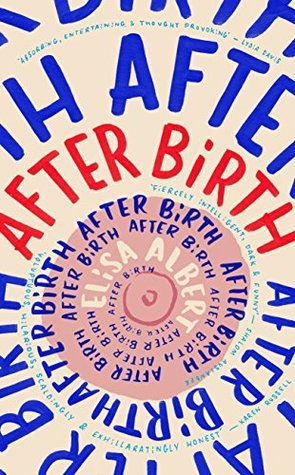
It wasn’t until I picked up this book that I realised how little fiction even begins to approach birth and motherhood with any degree of emotional honesty.
In After Birth, Elisa Albert seems to have made it her manifesto to “go there” with as little filter as possible, and I fucking love her for it.
A year after her first child’s birth, Ari – a procrastinating PhD student in a quiet university town in upstate New York – is still processing a traumatic birth and slowly emerging from the fog of boredom, terror and existential angst of mothering an infant. She’s angry – at the birth experience she didn’t want, at the inane conversation of mothers, at her inability to make friends – and suffering from post-natal depression and anxiety. A poet called Mina Morris is in town, heavily pregnant, subletting a house that Ari is managing for the owners, and Ari is desperate to be her friend. Mina represents lots of things Ari wants to be and is not: she is empowered, free, and genuinely doesn’t give a shit what other people think. But Ari also has some power over Mina as an “expert” a year into this parenting business already.
What follows is as much an exploration of female friendship as it is a treatise on birth, breastfeeding, and motherhood. Ari reflects on the other significant female friendships of her life, which have all ended badly somehow, and determines that this one will be different, this one will last. Despite Mina and her baby moving away again at the end of the book, you get the feeling that – thanks to the emotional trauma having a kid has forced Ari to confront – this might actually be true.
Surely every new mother has to go through some sort of processing and reckoning to come to terms with her new identity after having a kid. You would think so, but sometimes it seems like the masses in the coffee groups and daycare pick up lines don’t spend their days in an agony of conflicting emotions like me (and Ari). My strong suspicion is that everyone is struggling to adjust, and we experience considerable relief and recognition when someone like Elisa Albert is prepared to open up her head and be brutally honest about the reality of the experience.
If the book falls short, it’s in equating too much of that feeling of being turned inside out to having a traumatic birth experience. Ari – if not Albert herself – seems to think that if she’d just been able to have a natural birth and a village of mothers and aunts surrounding her in the post-partum period, everything would have been okay. I had a straight-forward home birth and a relatively easy breastfeeding experience, and I still feel, two and a half years later, like I was taken apart and put back together in a not altogether better way by the experience of having a child. The strength of After Birth is the radical honesty with which Albert is prepared to depict this experience. It’s not always comfortable, but it sure as hell rings true.
November 24, 2015
After Birth by Elisa Albert
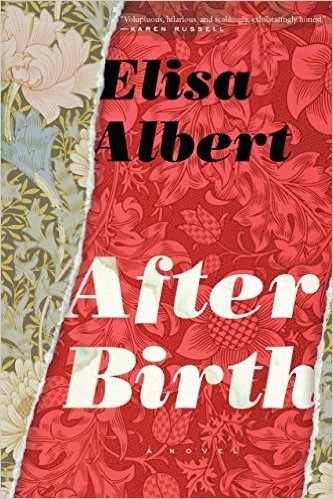
After Birth by Elisa Albert is told from the point of view of Ari, a motherless, isolated womens’ studies scholar experiencing post-partum depression after a traumatic and violating C-section. Lost, alone and desperate she is haunted by the specter of her dead mother and several failed female friendships which become symbols of her own fear and inadequacy as a mother. Forced by society and circumstance to raise a baby without a community of support, she temporarily overcomes her situation by bonding with Mina, another new mother whose feminist punk band Ari followed as a fan. Ari’s manic obsession with Mina runs counter to her depression in a predictable cycle but the story doesn’t have an obvious resolution. The writing is strong, vivid and nightmarish. Comparisons to Bukowski and Sylvia Plath are exact: this book is the place where misogyny meets misanthropy. Dark, disturbing and dismal. I loved it.
For fans of Claire Messud, Mary Gaitskill and Kate Zambreno.
September 4, 2015
How This Night Is Different: Stories, Elisa Albert, Good Book
June 30, 2015
An OED Update Reveals the Surprising Place Where Hundreds of New Words Originated
The June quarterly update of the Oxford English Dictionary, out this week, brings with it more than 500 new words. As with other lexicographical updates we’ve seen in 2015, the OED list includes new entries tethered to a rapidly evolving language of gender and identity (cisgender, intersectionality), as well as depressing, obligatory additions stemming from life under the technocratic regime of late capitalism (infopreneur). And, of course, there is no shortage of embarrassing gibberish (totes).
Lexicographers usually follow these lists with convivial notes that describe the magnitude of their project. They should: imagine a team of geneticists mapping a genome that is constantly in flux. Appropriately, then, in the note from this quarter, Head of US Dictionaries Katherine Connor Martin points out that this list, released 14 years after the founding of the online OED, features “dozens of items which are not recorded before the 21st century, but which are now widely used in English.”
The Internet, with its various subcommunities and formats, is responsible for many of these new words. But it’s not responsible (by any stretch) for all of them. The new update, for example, comes with a surprising number of fascinating borrowings and hybrids from Philippine English. Take the word “batchmate,” which, as far as I can tell, is a synonym for classmate. Or “carnap” — “to steal a car” — which was actually first found in US magazines but was salvaged by Filipinos after falling into American disuse. Even the word “salvage” has a different meaning in Philippine English: “to summarily execute a suspected criminal.”
If it isn’t clear from the case of Philippine English, the task of the OED editors isn’t limited to adding new words. New information about the etymologies of entries (both new and familiar) often results from research or readerly input. Often, too, it’s the quotations (over and above the source of the word itself) that resonate with readers and “users” of the OED.
With this in mind, and turning back to the Internet, it’s perhaps surprising to note that, of all online sources, Usenet has been the most generative of OED citations. According to Assistant Editor Jonathan Dent, “[the] OED currently makes use of nearly 2,500 quotations from Usenet, with quotations from its newsgroups providing the first available evidence for use in more than 400 senses or entries.” In fact, the more you look at the specific words that are sourced from (or contextualized by) Usenet, the more obvious it becomes that much of our online and offline culture is derived from the factional world of 1990s newsgroups:
Usenet provides early evidence for many computing and Internet-related terms (defrag, the verb to email, http, mp3, p2p, XML) and vocabulary from the shadowy world of hacking (black-hat and white hat, darknet, hacktivism)…‘geek culture’ (cosplay, LARP, retcon, alpha geek, anime, and the newly added ship), identity politics (LGBT, cisgender), and sexual subcultures (BDSM).
In his note on the quarterly update, Dent suggests that what elevates Usenet over and above other potential online sources is its emphasis on shared communities — as opposed to, say, diffuse, rage-based networks — which more easily generate context (and therefore meaning). So when it comes to producing meaningful language, Twitter, even with its 500 million tweets a day, is still catching up to a technology that found its identity in the 1980s and 1990s.
What’s interesting to me about the OED notes is how they chime with an upbuilding argument about language, technology, and culture, one that is finding new expression in 2015. New words can be found almost anywhere, yes, but the takeaway from the OED notes is that memorable, meaningful language is more likely to be discovered alongside a strong communitarian impulse, whether it forms online or offline, on Usenet or in the Philippines. Similarly, I would argue, Joshua Cohen’s new novel, The Book of Numbers, works to restore language (and the Internet) to its human sociability; likewise, rant-novels like Elisa Albert’s After Birth and Ben Metcalf’s Against the Country set themselves — explicitly or not — against the comparatively unsophisticated, reactionary impulses of social media. It’s almost as if, subjected to the omnipresence of social technologies, our best writers have chosen to linguistify and socialize the culture they produce.
June 25, 2015
The 15 Best Fiction Books of 2015 So Far
Nothing is sacred in contemporary fiction! That’s the lesson taught by the best books (so far) of 2015. From high-comedic novels that challenge race, class, and gender lines to short stories that lunge at the borders of literary form, from re-imaginations of literary classics set among immigrant communities to reinventions of autobiography — in a few short months, the fiction of 2015 has thrived on iconoclasm. With this in mind, here are the best fiction books of 2015 so far; we’ll have to wait until autumn to see if Franzen and Company can keep up the pace…
Book of Numbers, Joshua Cohen
“Proust did not give in to sleep,” Walter Benjamin wrote in “The Image of Proust,” the same essay where he declared, in the first paragraph, that “all great works of literature found a genre or dissolve one.” Well, of all the novels on this list, Cohen’s Book of Numbers is the only one that can lay claim to inventing a genre — one that now extends several decades into the past. We can call this genre “the Internet Novel,” if we like, or we can just acknowledge that this book, a Nile of language, was written by an author who did not give in to sleep. — Jonathon Sturgeon
Mislaid , Nell Zink
In one short year, Nell Zink has become the most misunderstood US writer of the last ten. Still, you can enjoy Mislaid — it really is by some measure the funniest novel of the year — even if you don’t appreciate, like I do, Zink’s joshing of US journalists, which has already become a pastime for her. In either case, this iconoclasm on Zink’s part may well have formed against Mislaid’s primary comedic target: the American South’s mania for class, race, and gender lines. — Jonathon Sturgeon
After Birth , Elisa Albert
A novel about unlearning the nonsense that comes along with motherhood and childbirth, Abert’s debut is also the story of a (for once) credible friendship. Written in perfectly clipped sentences, it’s a first-rate example of the novel-as-rant. Funny, mean, brusque, but always alive, After Birth evokes a radical past and points to a better future for American fiction. — Jonathon Sturgeon
Signs Preceding the End of the World , Yuri Herrera
The first of Herrera’s novels to be translated into English, Signs Preceding the End of the World renders the Mexican-American border as both a fraught passage between nation states — as a dangerous boundary lined with death and memories of the dead — and a singularity between states of being, where one soul is translated into another. Short and filled with things never before seen in our own literature, Herrera’s novel also features one of the most affecting protagonists, a young woman named Makina, in all of recent fiction. — Jonathon Sturgeon
My Documents , Alejandro Zambra
The culmination of Zambra’s work so far, My Documents is a highly inventive, affecting, often hilarious set of autobiographical fictions — or is it a novel, set in past and present Chile, composed of different files in a documents folder? — that epitomizes the expression “the oeuvre is the soul.” — Jonathon Sturgeon
The Love Object, Edna O’Brien
With the publication of Ben Marcus’ New American Stories, this summer will offer plenty of new thinking about the short story form. But for now I’ll stick with O’Brien’s fire-warmed Chekhovian realist fictions (though they are slyly experimental), which run the gamut from stories of class and romance to cautionary tales of sex and madness. — Jonathon Sturgeon
The Turnip Princess and Other Newly Discovered Fairy Tales , Franz Xaver von Schönwerth
Fairy tales, whether or not we choose to acknowledge them, are hugely important to some of our most ingenious writers of contemporary fiction, including authors like Kelly Link and Robert Coover. Now we have several hundred more, some of which are featured in this collection, gathered and recorded by the Grimms’ favorite folklorist. Found in municipal archive in German, von Schönwerth’s tales include all the favorites: Mermen, turnip princesses, and more. — Jonathon Sturgeon
Against the Country , Ben Metcalf
The first good novel of 2015 is one of its best. And it’s one of two sui generis novels on this list to take place in Virginia. (The other is Mislaid.) It is also one of two novels on this list to take the form of an extended rant. (The other is After Birth.) But I think you almost have to go back to Huysmans’ Against the Grain (also translated as Against Nature) — the title of which this book’s title recalls — to unearth a kindred spirit of similarly nasty eloquence. A novel as much about fathers as it is about provincial rage, Metcalf’s Against the Country is filled with lines that I have memorized, like this: “Fathers write, and sons read, and sons then write, and fathers then die before they can read what their sons have written against them.” — Jonathon Sturgeon

The Sellout, Paul Beatty
Hailed as madcap, brilliant send-up (“Swiftian,” say the critics) of race and American history, Paul Beatty’s novel follows a young man suffering from loss and disillusionment whose attempt to save his town, Dickens, results in some unorthodox challenges to American doctrine — attempting to reinstate slavery and re-segregate schools. — Sarah Seltzer
Outline, Rachel Cusk
Over the course of ten seemingly one-sided conversations, a deeper current begins to take shape in Cusk’s quietly revolutionary novel. A woman’s life and traces of her history take shape in the background of others’ stories. — Sarah Seltzer

Ruby, Cynthia Bond
Oprah’s Book Club anointed this dark, magic-infused story of a woman who has fled her southern hometown, suffered again in the North, and returned at last, where the locals think she’s gone mad. Testifying to the brutality of racist and sexist violence as well as unusual sources of healing, Bond’s novel has been drawing comparisons to art as diverse as Toni Morrison and HBO’s True Detective. — Sarah Seltzer
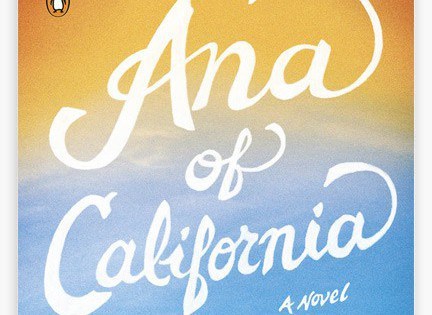
Ana of California, Andi Teran
Inspired by Anne of Green Gables, Tehran’s novel follows a teenage orphan on a last-ditch attempt to find a home on a farm, which isn’t exactly her natural habitat. As heartwarming as its inspiration, with a contemporary bite. — Sarah Seltzer
RE Jane, Patricia Park
Another clever classic-lit update that touches on modern themes, this one a spin on Jane Eyre that follows a young half-Korean orphan as she moves from being ignored in Flushing, Queens to nannying in Park Slope to finding her roots in Seoul. Self-knowledge is more important than romance as the prize that lies at the end of this heroine’s journey.— Sarah Seltzer
The Sympathizer, Viet Thanh Nguyen
Chronicling espionage and double-dealing in the postwar years, this highly praised debut novel traces both a fractured global politics as well as its narrator’s fractured identity. “His book fills a void in the literature, giving voice to the previously voiceless while it compels the rest of us to look at the events of 40 years ago in a new light,” says Philp Caputo in the New York Times. — Sarah Seltzer
Counternarratives, John Keene
Richly conceived and brilliantly executed, the most original set of fictions to be released so far this year, John Keene’s Counternarratives does for American literature what Alexander Kluge’s fiction has done for German literature — it reopens its future by laying bare its ideological roots. The long narrative “An Outtake From the Ideological Origins of the American Revolution,” which documents the lost story of a runaway slave — as if this story were cut from Bernard Bailyn’s Pulitzer Prize-winning history — is a masterpiece of short fiction. — Jonathon Sturgeon
May 14, 2015
After Birth by Elisa Albert
Had I read Elisa Albert’s After Birth a decade ago, I would have been fuming. Talk about an author forcing readers to put their angry pants on. And their judgmental pants. And their ‘I’m being deliberately-provocative-to-make-you-furious pants. And their let’s-judge-other-mothers pants. Instead, I found it mildly amusing. I’m far enough out of the baby-zone to know that no one really gives two shits whether you had a c-section or a natural birth; breast-fed or bottle-fed; co-slept or put the baby in a cot at the other end of the house.
“The baby’s first birthday. Surgery day, I point out, because I have trouble calling it birth. Anniversary of the great failure.”
And yes, some bits made me laugh (because the audacity, because new mothers will either go mental or identify with it) –
“He’s an awesome baby, a swell little guy. Still a baby, though, of which even the best are oppressive fascist bastard dictator narcissists.”
“Sometimes I’m with the baby and I think: you’re my heart and my soul, and I would die for you. Other times I think: tiny moron, leave me the fuck alone…”
There’s also a lot of truth about the emotional intensity of mothering –
“…he’s completely and totally dependent, which is very intense, but it’s not love. Over time I have to let go of him. That’s love. That’s the work.”
That intensity, the relentlessness of mothering was what I remember as being the bit that warranted the “Why didn’t anyone tell me this…?”.
I suspect most readers will be distracted by Ari’s self-righteousness, her anger and distrust of other women, and perhaps miss some of the truths that are buried in her vitriol.
3/5 It’s meant to be funny, right?
I received my copy of After Birth from the publisher, Random House UK, via NetGalley, in exchange for an honest review.
Ari is all about whole foods. But I did detect a chocolate chip cookie weakness – these from How Sweet It Is.
May 10, 2015
In the Media: 10th May 2015
In the media is a weekly round-up of features written by, about or containing female writers that have appeared during the previous week and I think are insightful, interesting and/or thought provoking. Linking to them is not necessarily a sign that I agree with everything that’s said but it’s definitely an indication that they’ve made me think. I’m using the term ‘media’ to include social media, so links to blog posts as well as traditional media are likely and the categories used are a guide, not definitives.
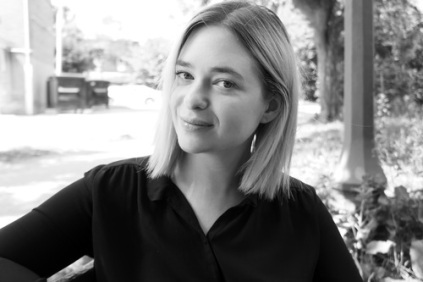
It’s Mother’s Day in 80 countries around the world today. Not surprisingly, there has been a whole range of articles, from a whole range of view points, about mothers and motherhood this week. The Hairpin ran a series including ‘Mommy Queerest‘ by Sarah Liss; ‘Thoroughly Modern Murdering Mothers; or, Women Who Kill for Their Children‘ by Meredith Haggerty; ‘A Joke, A Story‘ by Naomi Skwarna; ‘Going for the Burn: Revisiting Jane Fonda’s Workouts‘ by Alison Hamm’ ‘Mothers and Moms‘ by Haley Mlotek, and Randi Bergman, ‘The Weirdest Beauty Tips I Learned From My Mom‘.
Tameka Cage-Conley wrote, ‘Motherhood, Art, And Police Brutality‘ on VSB; Amy Shouse wrote ‘My mom never wanted kids‘ on Salon; Anne Enright wrote, ‘When Mother Leaves the Room‘ in The New York Times; Cheryl Strayed wrote, ‘The ‘Painful Personal Toll Lung Cancer Has Taken on My Life’‘ on The Huffington Post; Monica Hessler, ‘The long drive to end a pregnancy‘ in The Washington Post; Mary HK Choi, ‘The Dicks Of Our Lives‘ on Buzzfeed; Mary Elizabeth Williams, ‘Sorry about Mother’s Day, my childfree girlfriends: Moms aren’t any more special (or unselfish) than you‘ on Salon; Edwidge Danticat, ‘A Prayer Before Dying‘ on Literary Hub; Brogan Driscoll, ‘I Refuse to Celebrate ‘Dad Bod’, Until We Appreciate the ‘Mum Bod’ Too‘ on the Huffington Post

Catherine Bennett wrote in The Guardian, ‘It’s dehumanising to be ‘an oven’ for someone else’s baby‘; Jessica Roake wrote, ‘An Ode to the “Mom’s Night Out”‘ on Slate; Rebecca Mead wrote, ‘A Woman’s Place Is on the Internet‘ in The New Yorker; Sophie Heawood wrote, ‘I’ve read all the advice, but I still don’t know – am I raising a serial killer?‘ in The Guardian; Laila K wrote, ‘Up with the kids‘ in The Pool; Dahlia Lithwick, ‘“Bye-Bye, Normal Mommy”‘ on Slate; Christie Watson, ‘The Joy and Pain of Trans-Racial Adoption‘ on Literary Hub; Meagan O’Connell, ‘It’s My First Mother’s Day As a Mom. Now What?‘ in The Cut; Kate Spencer, ‘How I Finally Let Go Of Grief For My Dead Mom‘ on Buzzfeed; Domenica Ruta, ‘Can Having a Child Help Me Get Over My Abusive Mom?‘ in The Cut.
Danah Boyd, ‘I Miss Not Being Scared‘ on Medium; Melissa Duclos, ‘To the Doctor Who Reported Me to Child Protective Services‘ on The Offing; Christopher Frizzelle, ‘The Day Virginia Woolf Brought Her Mom Back to Life‘ on Literary Hub; Lauren Laverne, ‘“Mum” as a diss‘ in The Pool.
And if you’d rather read a book instead, Literary Hub suggests, ‘Five Intense Books for Mother’s Day‘ and the Huffington Post recommends, ‘Mother’s Day Reads: Eight Great Mother Characters in Literature‘.
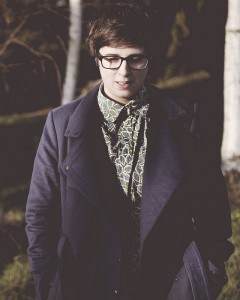
Photograph by Idil Sukan
In the UK, there was a general election. 3AM Magazine ran a whole series of reactions including, Lauren Elkin, ‘an open letter to mark-francis vandelli‘; Juliet Jacques, ‘london – 2015‘; Eley Williams, ‘rosette manufacture: a catalogue and spotters’ guide‘, and Rachel Genn, ‘you wouldn’t like me when i’m disappointed‘. Other reactions included: Laurie Penny, ‘Don’t give in: an angry population is hard to govern; a depressed population is easy‘ in the New Statesman; Joan Smith, ‘Almost a third of all MPs are now women – a milestone has been reached‘ in The Guardian; Janice Turner, ‘Why the north is in revolt against Labour‘ in The Times; Beluah Maud Devaney, ‘Unfriending Tories on Facebook Is Not the Answer‘ on the Huffington Post
And there were a few pieces written prior to the result that I still think are worth reading: Sam Baker, ‘When voting doesn’t make you feel good‘ in The Pool; Suzanne Moore, ‘By Friday we’ll be reduced to bystanders at a revoltingly macho political stare-off‘ in The Guardian; Concepta Cassar, ‘Food For Thought: Hazlitt, Malthus and the Tragedy of Food Banks‘ in Litro; Katy Guest, ‘Sandi Toksvig’s Women’s Equality Party is a movement for which time has come‘ in The Independent; Salena Godden, ‘Colour-blind: What colour are you?‘ on her blog, and Isabel Rogers’ poem ‘The truth about political correctness‘ on her blog.

I promised myself I wouldn’t mention it but there have been a few good pieces written about the birth of THAT baby: Sian Norris, ‘She’s not like other girls…‘ on Sian and Crooked Rib; Heather Havrilesky, ‘Royal Baby Girl Fated to Lead International Mob of Fake Princesses?‘ in The Cut, and Viv Groskop, ‘She’s a tiny baby, not a Kardashian‘ in The Pool.
Congratulations to Gill Lewis who won the Little Rebels children’s book award with Scarlet Ibis this week; to Emily St. John Mandel who won the Authur C Clarke award, and to Alice Notley who won the Ruth Lilly Poetry Foundation Prize. A gender balanced shortlist was announced for the RSL Ondaatje Prize 2015 and a female dominated one for the Branford Boase Award 2015. The ALS Longlist and NSW Premier’s Literary Awards Shortlists were also announced.
The best of the rest:
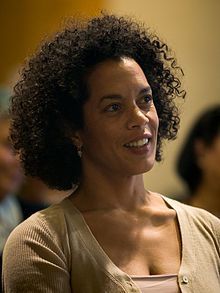
On or about books/writers/language:
Katy Derbyshire, some stats about Women in Translation on Women in Translation
Voula Grand, ‘on The next Gone Girl (The spells stories cast – or don’t)’ on Isabel Costello’s Literary Sofa
Lois Leveen, ‘All the Years Ahead: On Committing Literary Suicide‘ on The Millions
Joanna Biggs, ‘My hero: Shulamith Firestone‘ in The Guardian
Various, ‘‘Get your head out of that book!’ – the children’s stories that inspired leading writers‘ in The Guardian
Anne Enright, ‘A return to the western shore: on yielding to the Irish tradition‘ in The Guardian]
Jill Kronstadt, ‘A God in Ruins: Kate Atkinson After Kate Atkinson‘ on Bloom
Diane Watt, ‘Rethinking the Medieval Canon‘ on The University of Surrey: Women’s Literary Culture and the Medieval Canon
Jeanette Winterson, ‘Ruth Rendell: memories of a friend who stood by me‘ in The Guardian
Alison Flood, ‘Archive find shows medieval mystic Margery Kempe’s autobiography ‘doesn’t lie’‘ in The Guardian
Jordan Kinsley, ‘Rewriting Fairy Tales‘ on Rewriting Mary Sue
‘Like Madame Bovary blasted by lightning’: By Grand Central Station I Sat Down And Wept on the 4th Estate Blog
Jill Lepore, ‘Looking at Female Superheroes with 10-year-old Boys‘ in The New Yorker
Vanessa Lafaye, ‘The Breath of Creativity‘ on Random Things Through My Letterbox
Josephine Livingstone, ‘Ban Men from Literary Readings‘ in the Gawker Review of Books
Aminatta Forna, ‘Where Are the West’s Political Novelists?‘ on Literary Hub
Emma Claire Sweeney, ‘Elizabeth Bishop and Marianne Moore‘ on Something Rhymed
Kirsty Logan, ‘Made-up worlds (and a worldie maid)‘ on Bookanista
Robert McCrum, ‘The 100 best novels: No 85 – The Bell Jar by Sylvia Plath (1966)‘ in The Guardian
Lori Lansens, ‘Living with authoritis‘ on Bookanista
Lizzy Kremer, ‘Living Life Through Metaphor: the Necessity of Fiction‘ on Publishing for Humans
Sarah Seltzer, ‘Why We Should All Be Spinsters: Writers Take on a New Feminine Mystique‘ on Flavorwire
Jason McBride, ‘Losing Control of the Language‘ (on Kathy Acker) on Slate
Marsha Lederman, ‘Breaking up the Canadian theatre boys’ club: New plays fight the gender gap with all-female casts‘ in The Globe and The Mail
Caroline Criado-Perez, ‘We deserve to know about the women who show us what can be done and how to do it’ in The Observer
Jo Walton, ‘A Great Castle Made of Sea: Why Hasn’t Susanna Clarke’s Jonathan Strange & Mr Norrell Been More Influential?‘ on Tor
M. J. Carter, ‘on Edgar Allan Poe‘ on Raven Crime Reads
Marie Phillips, ‘In defence of Amy March‘ in The Pool
Katherine May, ‘Happily Never After‘ on Aeon
Jamie Fisher, ‘High Style and Desperate Love: On the Life and Work of Eileen Chang‘ on The Millions
Mallory Ortberg, ‘Dirtbag Tess Of The D’Urbervilles‘ in The Toast
Leah Ferguson, ‘It’s Like Having An Alter Ego, But Harder‘ on Women Writers, Women’s Books
Alex Clark, ‘25 years of the Encore award: a cure for second-novel syndrome‘ in The Observer
Kate Taylor, ‘We need to speak up about sexism in the arts‘ in The Globe and The Mail
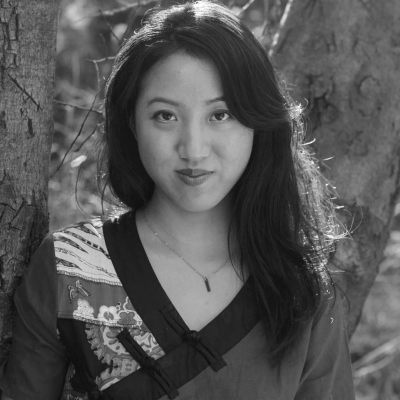
Personal essays/memoir:
Lucy Grealy, ‘Autobiography of a Body‘ on Nerve
Masooma Hussain, ‘Symmetry in Our Misshapenness‘ in The Butter
Sharisse T. Smith, ‘Hair Trajectory‘ in The Los Angeles Review
Jenny Zhang, ‘Far Away from Me‘ in Rookie
Tovah Burnstein, ‘A Woman Like Water‘ in The Butter
Clarissa Wei, ‘Why I Will Always Love My Ex-Boyfriends‘ on XOJane
Suzanne Joinson, ‘Dirty Talk and Dostoyevsky on the Night Shift‘ in The New York Times
Leah Reich, ‘The Tin Woodman‘ on Medium
Vickie Vertiz, ‘Kissing‘ in The Offing
Anupa Mistry, ‘That Home Feeling‘ on Hazlitt
Sali Hughes, ‘Proud to be a prude‘ in The Pool
Melissa Hughes, ‘Starting Over at 35‘ on Medium
Jenny Diski, ‘In Gratitude‘ in the London Review of Books (£)
Jennifer S. Cheng, ‘Hikikomori: Salt Constellations‘ on LIterary Hub
Mary J. Breen, ‘Childhood: Dollhouses, Solitude, and the Souls in Purgatory‘ in The Toast
Amelia Gray, ‘Tsujita LA Artisan Noodle‘ on The Morning News
Sonya Lee, ‘Daisy Duke and the Manosphere‘ on The Rumpus
Mackenzie Mays, ‘Your Dad is Still Your Dad: On Family and Alcoholism‘ in The Toast
Thea Goodman, ‘The Elevator Ride‘ on The Rumpus
Abhilasha Kumar, ‘A Capital Affair‘ in Kindle
Steph, ‘In celebration of discovering feminism, Caitlin Moran, and chips with curry sauce‘ on Reimagining My Reality
Leesa Cross-Smith, ‘Kentucky Decadent & Derby Depraved‘ on Real Pants
Sarah Lepiciger, ‘How do you cure homesickness?‘ in The Guardian
Sarah Franklin, ‘How could I not guess that my son would love football?‘ in The Guardian
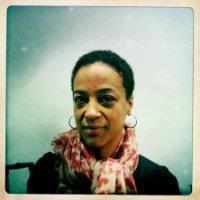
Feminism:
Ann Friedman, ‘Let’s do this. Let’s talk about periods‘ in The Pool
Rebecca Carroll, ‘The Police Hit Black Women With Both Racism and Sexism At Once‘ in The Guardian
Guilaine Kinouani, ‘The language of distress: Black women’s mental health and invisibility‘ on Media Diversified
Juniper Fitzgerald, ‘The Price of Knowledge: Discrimination Against Sex Workers In Academia‘ on Tits and Sass
Katy Waldman, ‘Bitch, I’ll Tell You Why This Sentence Construction Is So Effective‘ on Slate
Meg Zulch, ‘Why Calling Someone A “Tomboy” Is Hugely Problematic And Reifies Unnecessary Gender Roles‘ on Bustle
Sayan Bhattacharya, ‘A Room of Her Own‘ in Kindle
Koli Mitra, ‘Fault(y) Lines‘ in Kindle
Deepa Bhasthi, ‘The Pakoda-Frying Feminist‘ in Kindle
Tracy Moore, ‘The Best Time I Left a Used Tampon in a Dude’s Shower‘ in Jezebel
Maxine Builder, ‘How The Lack Of Asian Models In The Fashion Industry Created A Divide Between My Racial Identity And My Body‘ on Bustle
Megan Nolan, ‘Why is it so hard to get away from the powerful-man-loves-sweet-young-woman dynamic?‘ in The Pool
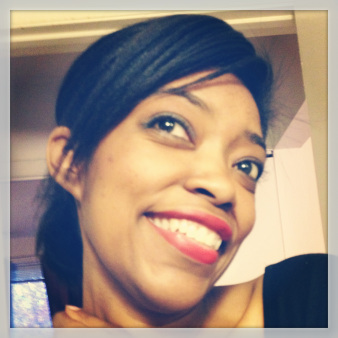
Society and Politics:
Eva Wiseman, ‘Where have all the ghosts gone?‘ in The Observer
Sarah Maslin, ‘The Price of Nice Nails‘ in The New York Times
Kate Fagan, ‘Split Image‘ on ESPN
Sarah Miller, ‘Death to the Maxi Dress: A Manifesto‘ on Jezebel
Jessica Pressler, ‘Bullsh*t. The art of the sell, a half century after Mad Men‘ in New York Magazine
Kera Bolonik, ‘America’s ugly whitesplaining epidemic: Baltimore, Freddie Gray and the media’s utter cluelessness‘ on Salon
Aamina Shakur, ‘Who Are the Rightful Owners of Artifacts of Oppression?‘ on Hyperallergic
Elisa Veini, ‘Doing Nothing Is an Art‘ in Berfrois
Megan Garber, ‘Aisle Be Seeing You: The Rise of the Totally Transparent Bridal Gown‘ in The Atlantic
Viv Groskop, ‘You’re never going to retire‘ in The Pool
Keiko Lane, ‘Intersections, on the Anniversary of the Rodney King Rebellion‘ on The Rumpus
Jamilah King, ‘#blacklivesmatter: How three friends turned a spontaneous Facebook post into a global phenomenon‘ in The California Sunday Magazine
Noor Alnaqeeb, ‘My Middle East: ‘We should go out there and represent ourselves’‘ on Media Diversified
Leslie Berlin, ‘Silicon Valley Then and Now: To Invent the Future, You Must Understand the Past‘ on Medium
Stacia L. Brown, ‘Looking While Black‘ in The New Republic
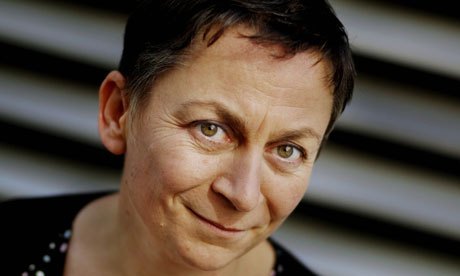
The interviews:
Mary Talbot on Escape Books
Caroline Criado-Perez in The Pool and in The Observer
Alice Notely on The Poetry Foundation
Kate Mosse on One Book Lane
Minette Walters in The Guardian
Joanna Walsh on The Fem
Maggie Nelson on Salon on The Rumpus, on Literary Hub, on Tin House
Toni Morrison at Politics and Prose on Slate and in United Hemispheres Magazine
Heidi Julavits in The Paris Review
Deborah Install (and Ben and Tang) on Sitting on a Cornflake
Joanna Biggs on the Guardian Books’ Podcast
Lauren Olivier in The Guardian
Kate Atkinson on Front Row on BBC Radio 4
Jillian Tamaki on Publishers Weekly
Catherine Lacey in The White Review
Claire Fuller on Word Mothers
Anne Marie Macari on The Rumpus
Sarah Dessen on Bustle
Ananda Devi in The Los Angeles Review of Books
Amelia Gray on Midnight Breakfast
Leslie Jamison on Salon
Sara Novic on BookPage
Sherry Simon on Drunken Boat
Mia Alvar on Publishers Weekly
Collier Nogues on Drunken Boat
Zoe Pilger on PEN American Centre
Tasha Kavanagh in The Independent
Elisa Albert on For Books’ Sake
Alison Sampson on Broken Frontier
Lauren Beukes and Joelle Taylor on the For Books’ Sake Podcast
Lindsay Parnell on Linen Press
Abi Hynes on The Fem
Anne Enright on Open Book, BBC Radio 4
Mona Eltahawy in The Observer
Mary Norris in The Observer
Katherine Clements on Rebecca Mascull’s Blog
Lydia Syson on Rebecca Mascull’s Blog
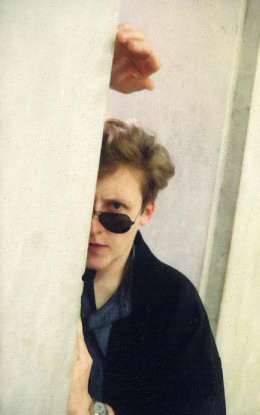
If you want some fiction to read:
‘The Boy Is Dead‘ by Kathryn Mockler in The Butter
‘Hyperbolics‘ an excerpt from The Story of My Teeth by Valeria Luiselli in BOMB Magazine
‘Infinite Cortex‘ by Clare Archibald in Visual Verse
An extract from From a Distance by Raffaella Barker on Bloomsbury Publishing
‘The Creature‘ by Edna O’Brien on Literary Hub
‘From the Paint Stains‘ by Rachel Charlene Lewis in Plenitude
‘odds & evens‘ by Candy Sue Ellison in 3:AM Magazine
Extracts from all the shortlisted novels for the Bailey’s Fiction Prize for Women on We Love This Book
An extract from Sphinx by Anne Garréta in The Believer
‘Bad Sex‘ by Jowita Bydlowska on Numero Cinq
‘Mother Wit‘ by Nitasha Kaul in Kindle
‘My Life Is a Joke‘ by Sheila Heti in The New Yorker
‘CONTINUE? Y/N‘ by Kendra Fortmeyer in The Toast
‘Amazing‘ by Erin Fitzgerald in Okey-Panky
An extract from Girl at War by Sara Novic on Literary Hub
‘I’ll Die and Be Right There‘ by Anna Mateeva (tr. Ellen Litman) on Guernica
If you want some poetry to read:
‘Glass, Ceiling‘ by C.E. Hyun in The Offing
Three Micros by Caits Meissner in The Offing
‘The Mission‘ by Rita Ann Higgins on Poethead
‘The Cake‘ by Krystin Gollihue on Blunderbuss
‘The Door‘ by Nomi Stone on Guernica
‘Selling His Soul‘ by Sophie Hannah in The Guardian
‘Dear Dorothy‘ by Suzi F. Garcia in The Offing
Two Poems by Lauren Gordon on Up the Staircase
‘This Was Ugly‘ by Lauren Gordon in Hermeneutic Staircase
If you want some non-fiction to read:
‘Scratching Out the City‘ from City Spaces: Filling in Berlin’s Gaps by Annett Groeschner (tr. Katy Derbyshire) in The Offing
An extract from Between You and Me – Confessions of a Comma Queen by Mary Norris in The Observer
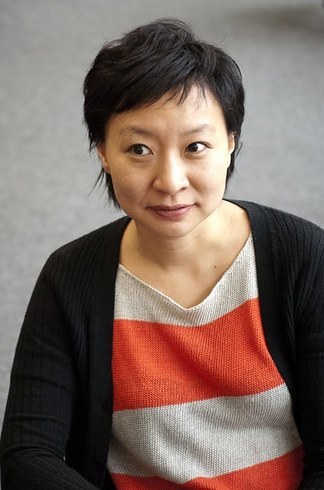
Photograph by Cybele Knowles
The lists:
19 Great Mysteries for Summer (with 19 Great Plot Twists) on The Oyster Review
PW Picks: Books of the Week, May 11, 2015 on Publishers Weekly
32 Essential Asian-American Writers You Need To Be Reading on Buzzfeed
7 Moving, Must-Read Memoirs Coming Out This Year on the Huffington Post
The Best Graphic Novels I’ve Ever Read on Electric Literature
5 Books to Take on Vacation in the Huffington Post
Here’s the Non-Trashy Summer Books You Need to Be Reading This Year on The Debrief
10 (insane) things I learned about the world reading Ayn Rand’s “Atlas Shrugged” on Salon
18 Brilliant Books You Won’t Want To Miss This Summer on the Huffington Post
The 22 Best F-Bombs From Female Authors in the Huffington Post
Elisa Albert's Blog
- Elisa Albert's profile
- 188 followers


